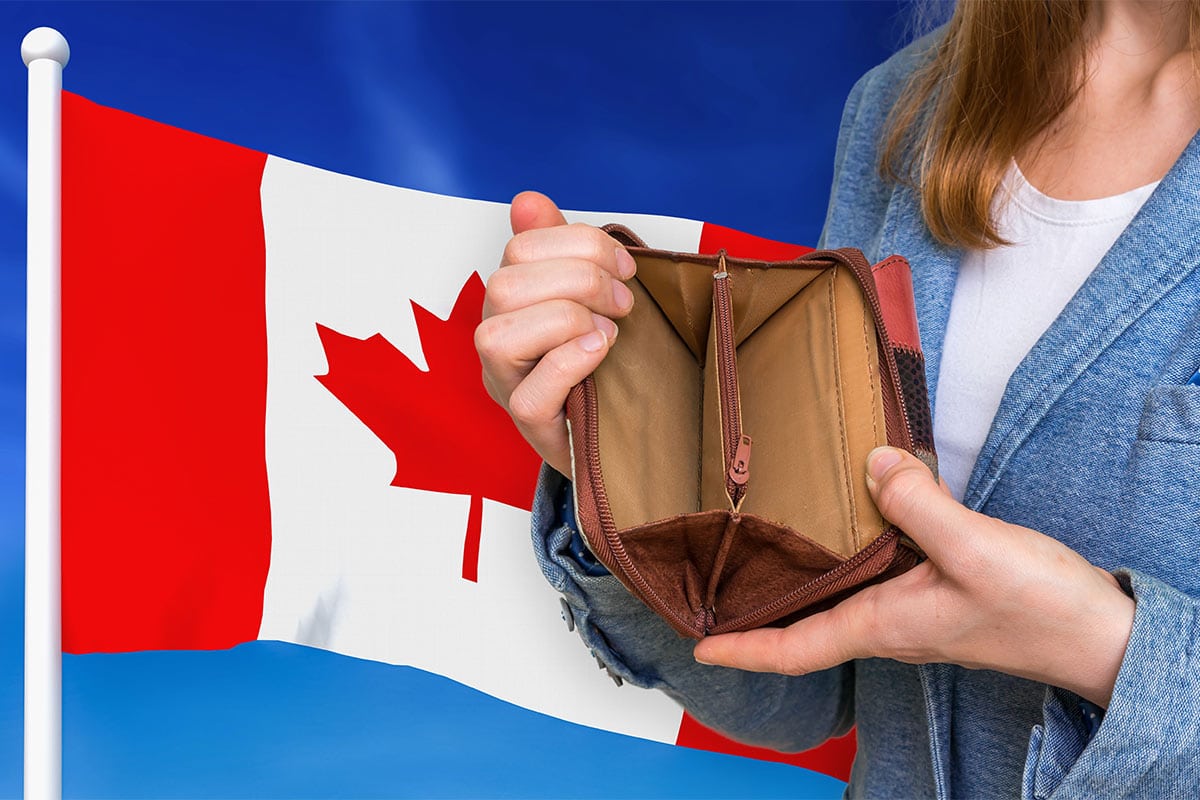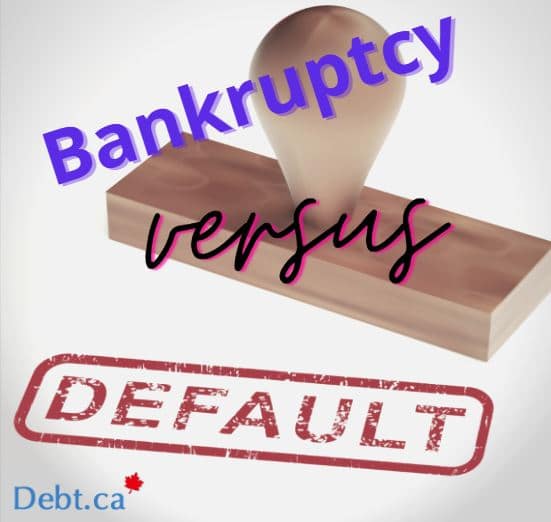Amid a global pandemic, you’d think that personal bankruptcies would be increasing, but that hasn’t been the case. In fact, personal bankruptcies seem to be heading in the opposite direction. At first glance, this may seem like good news, but the numbers are deceiving.
In this article, we’ll look at how personal bankruptcies fell to a record low in April. We’ll also discuss temporary measures the federal government and banks have been providing to help Canadians. Lastly, we’ll see whether we expect this trend to continue into the fall.
Personal Bankruptcies at a Record Low: Behind the Numbers
The number of Canadians filing for personal bankruptcies fell to a record low in April. A total of about 6,700 Canadians filed for bankruptcy or made a formal request to their creditors in April, according to the Office of the Superintendent of Bankruptcy Canada. That’s down a whopping 43 percent compared to April 2019. That doesn’t mean these people are entirely debt free.
That’s the biggest decline on record, going all the way back to 1988. It’s also the lowest number of Canadians filing for bankruptcy since at least 2007. Hooray!
But before we crack open the champagne bottle and celebrate, these numbers aren’t as good as they may seem. Fewer Canadians filing for personal bankruptcies doesn’t mean that fewer of us are feeling financial stress. Most Canadians are doing whatever they need to do to pay their bills for the time being. That can mean leaning on their credit card more, which can later affect their credit report.
It’s as if people would rather deal with credit debt than go through a lengthy legal process or deal with a bankruptcy trustee.
Effects of COVID-19
“While it’s true that many Canadians have taken on more debt to get by during COVID, their main financial focus right now in most cases is paying the bills,” says Sean Cooper, Bestselling Author of Burn Your Mortgage.
COVID-19 isn’t just a health crisis, it’s a financial crisis. According to the latest figures from Statistics Canada, over one million Canadians lost their job in March and another two million were out of work in April.
You’d think that with millions of Canadian out of work, personal bankruptcies would be way up. However, it’s quite the opposite. The record level of job losses may actually be keeping the number of personal insolvencies down for now.
“If you’re out of work, you’re by and large creditor proof. With the courts being closed due to COVID and millions of Canadians out of work, creditors aren’t able to garnish wages as they’d normally be able to do,” remarks Cooper.
The CERB Helping Stave Off Personal Bankruptcies
As of mid-May, over seven million Canadians have signed up for the Canada Emergency Response Benefit (CERB). This $35 billion federal government program offers Canadians who are out of work due to COVID-19 with temporary cash payments to get by.
While it’s good news to see most Canadians scraping by during COVID, the trend can’t continue forever. Although the CERB has been extended by eight weeks, it’s going to run out eventually.
If those Canadians who are out of work due to COVID cannot find another job in the coming weeks to help get their income levels back to where they were pre-COVID, we can expect a sharp rise in personal bankruptcies.
Most licensed insolvency trustees expect personal bankruptcies to remain low or even decline into the summer, as the courts and the economy aren’t fully reopened as of yet. However, once the CERB presumably ends in the fall, that’s when we should see a sharp uptick in personal bankruptcies.
Mortgage and Credit Card Payment Deferrals Helping, Too
But the CERB isn’t the only thing helping Canadians keep their head above water. At the suggestion of the federal government, financial institutions and credit card companies have been offering temporary mortgage and credit card payment deferrals.
Upon approval, Canadians have been able to defer their credit card and mortgage payments by up to six months. On the surface, this sounds pretty good and it is in some cases.
“Deferring your mortgage and credit card payments by six months provides you with immediate cash flow relief, which is helpful when you’ve suffered job losses due to COVID-19, but it’s important to recognize that these relief measures aren’t forever,” warns Cooper.
By deferring your mortgage and credit card payments, it gives you the necessary time to get back on your financial feet. However, if you’re unable to find employment and boost your income level by the time the deferral period runs out, you could find yourself in an even worse financial situation.
“Deferring your credit card and mortgage payments is just adding to your debt load. It’s a temporary Band-Aid solution. While you aren’t required to make payments right now, your debt payments will be higher later on once you have to start making them again,” says Cooper.
If you can’t make those payments later, that’s when you can find yourself in real trouble, heading towards filing for personal bankruptcy or a consumer proposal in a worst-case scenario.
The Consequences
Everything has a price and deferring your debt payments is no different. By deferring your payments the interest is added on top of the amounts you already owe. If your income level has decreased during COVID times, if you were already struggling to make debt payments when you were earning a full wage, you’re going to find it even tougher when you take on new debt and are earning less.
If you do decide to defer your debt payments, speak with your bank as soon as possible. The flood of Canadians applying for payment deferrals seems to have slowed down compared to the peak of COVID, so it shouldn’t be as bad right now.
It’s important to let your bank know right away. It’s much better to come up with an arrangement ahead of time than to start missing your debt payments. If you start missing your payments, this will only add to your debt load and hurt your credit score. This can cause your interest rates to go even higher.
Final Thoughts
Are you struggling with debt due to COVID-19? Learn more about the process and alternatives to bankruptcy. Reach out for a free consultation. We can help come up with a plan to get your debt situation under control. Begin your fresh start today.









